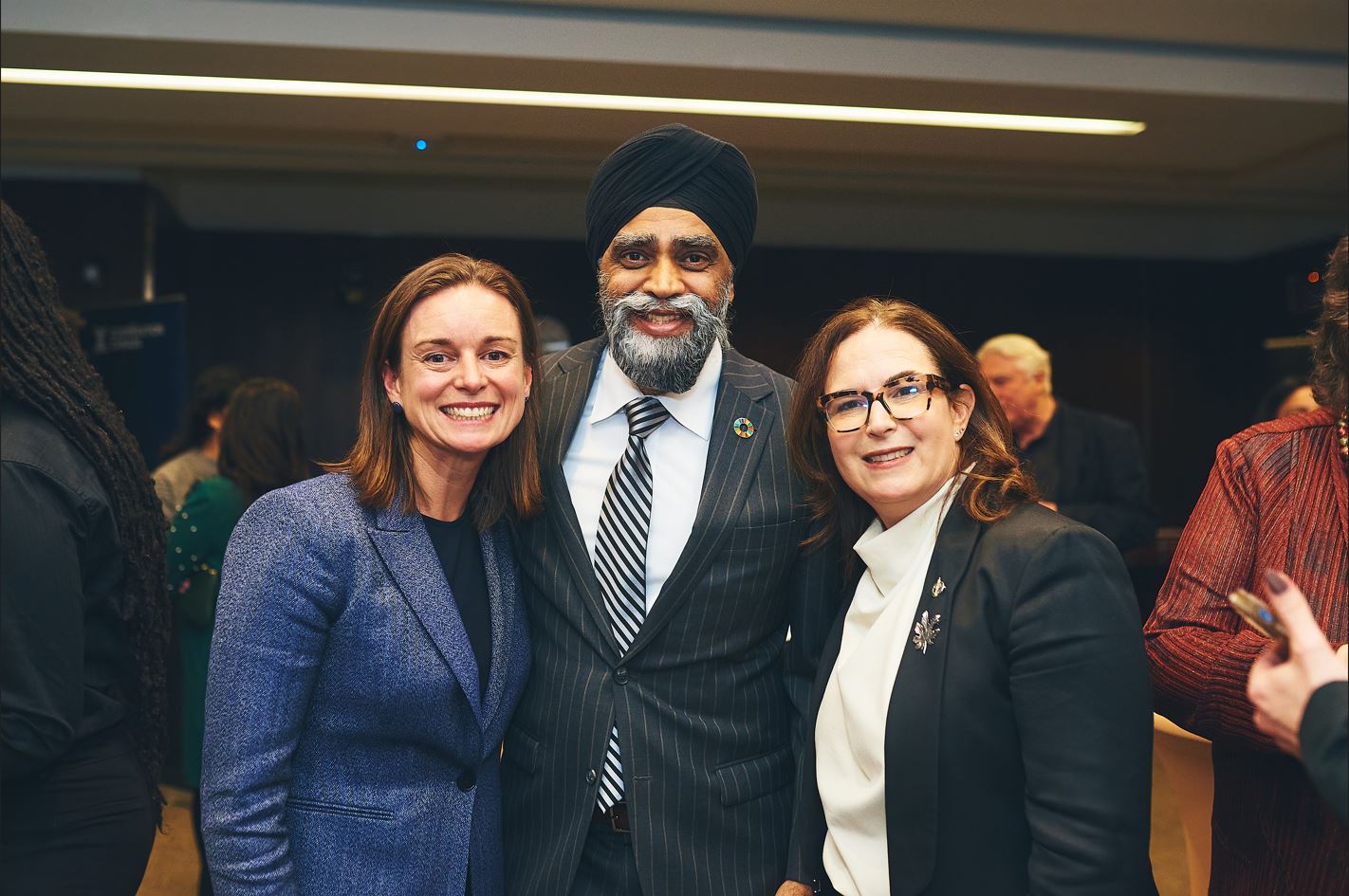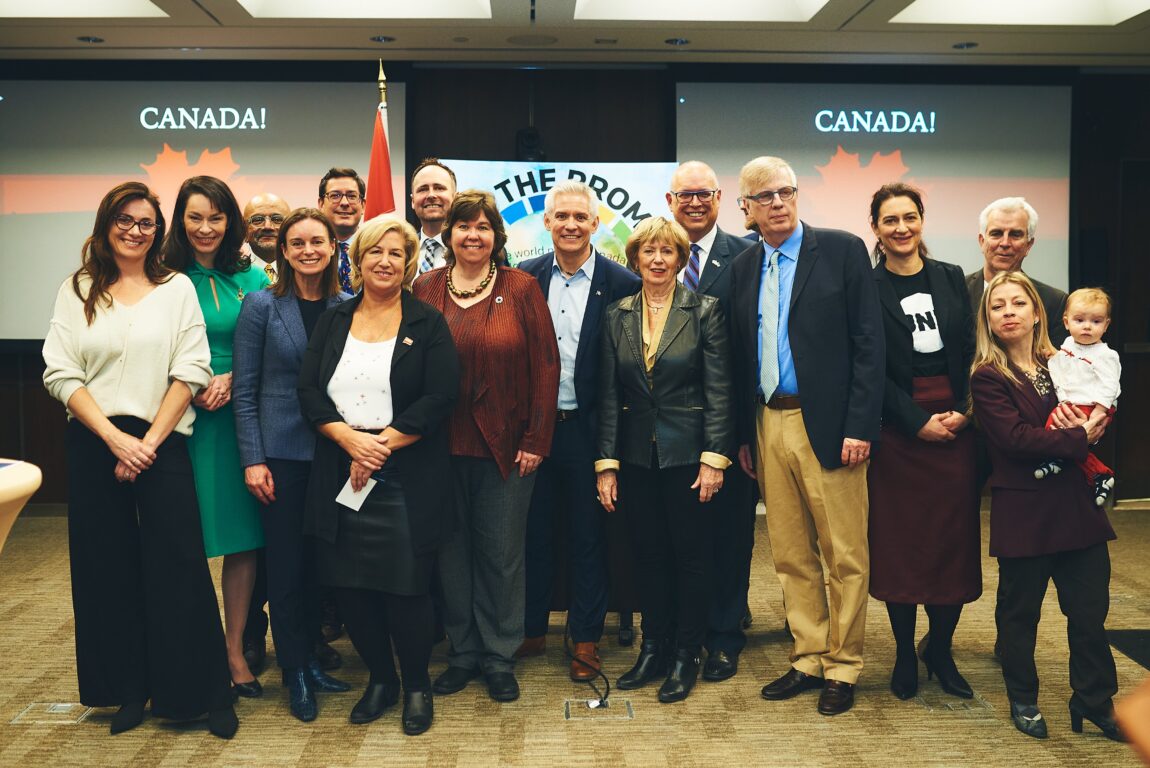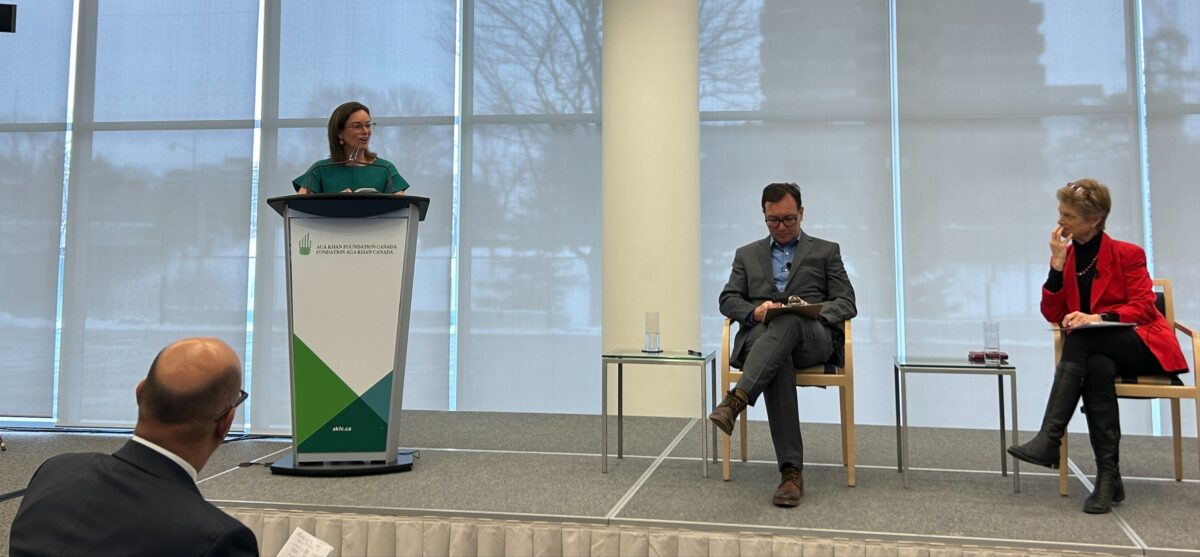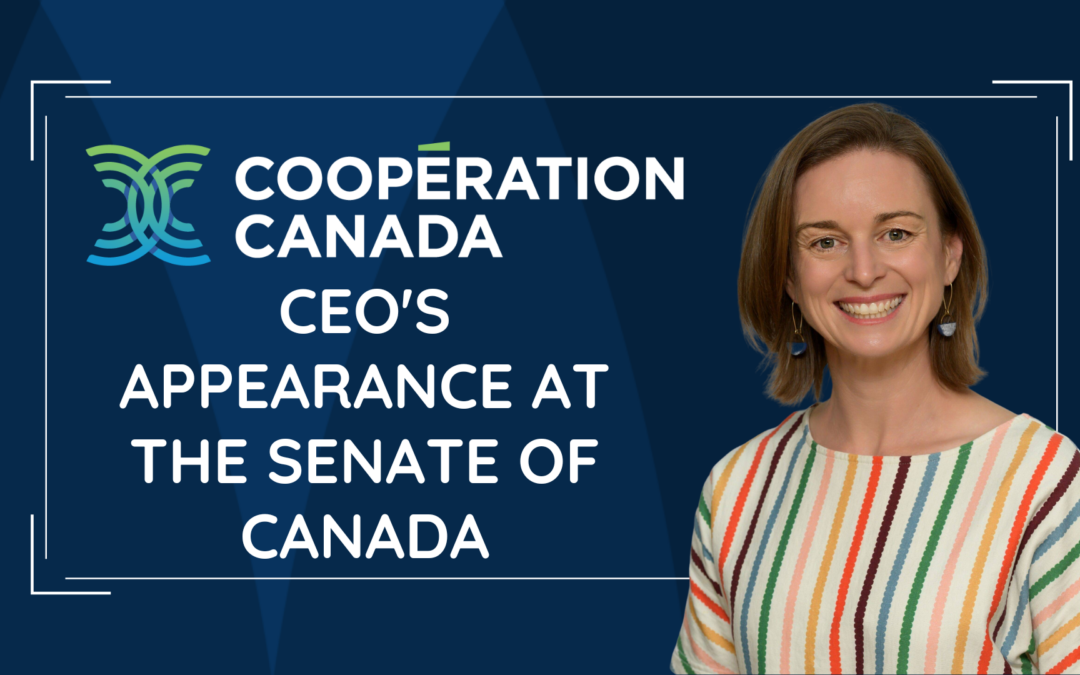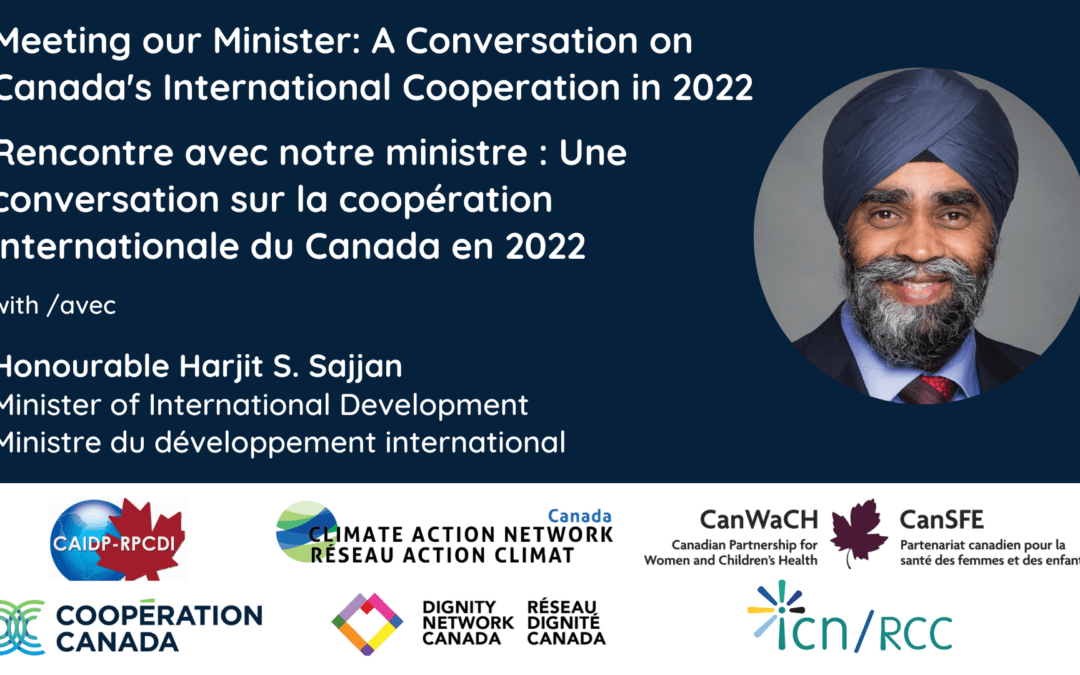Kate Higgins’ Testimony Before the Standing Senate Committee on Foreign Affairs and International Trade on Wednesday, February 8, 2023. Panel 1: from 4 p.m. to 5 p.m.
Good afternoon. It’s a pleasure to be here. Thank you for the opportunity to appear before this committee. I would like to honour, and extend my gratitude, to the Algonquin Anishnaabe people, whose unceded and unsurrendered territory we are meeting on today. I would also like to recognize that we are meeting during Black History Month, and acknowledge the harm that colonial, racist and oppressive practices that many, including civil society, have caused around the world in the name of development. Those of us engaging in international development and humanitarian assistance need to reflect deeply, evolve and take action to do better.
I am privileged to lead Cooperation Canada, a coalition of nearly 100 Canadian international development and humanitarian organizations working in all regions of the world. As an independent national voice for international cooperation, we work with our members, and with other partners here in Canada and around the world, to realize a fairer, safer and more sustainable world. As I speak to you today, my thoughts are with the people of affected by this week’s devastating earthquake in Turkey and Syria – where to death toll is currently over 11,000 and the World Health Organization is predicting will reach 20,000. Cooperation Canada members are working with their partners in Turkey and Syria, and their global networks, to provide immediate assistance.
As you all know, this week is International Development Week. An opportunity for us to shine a light on Canadian contributions to eradicating poverty, tackling inequity, and supporting rights, peace and prosperity around the world. Cooperation Canada members are working from coast to coast to coast to engage thousands of people this week. They’re in schools, universities and libraries, at indoor Farmer’s Markets and in cinemas, here on Parliament Hill, even at big hockey games, talking about the life-saving and life-changing difference that Canadian international development and humanitarian assistance is having around the world.
These discussions are taking place at a time when the world faces multiple crises that compound and exacerbate each other, and when the world feels more insecure and uncertain than it has in a very long time.
In 2023, some 339 million people are estimated to need humanitarian aid – a 25% jump over last year. At least 222 million people are food insecure – including some 45 million people facing starvation – in what the UN is calling “the largest global food crisis in modern history.” These record needs are fueled by a slew of colliding crises, including Russia’s invasion of Ukraine, pressure on global food systems, economic shocks throughout COVID-19 and the subsequent impact of the pandemic, and the climate emergency.
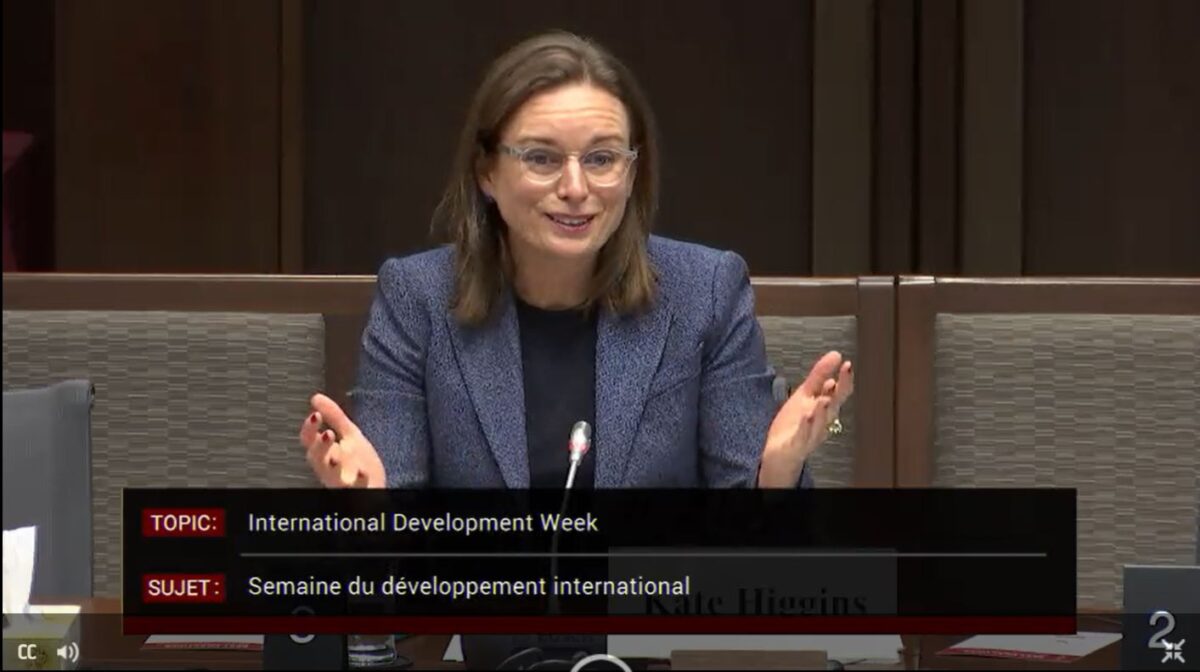
In Canada, we are not immune from these challenges or these crises. They directly affect our economic prosperity. They impact our security. And go against our values, and our belief in human rights, gender equity, democracy, and fairness.
With this as the context distinguished Senators, I have three messages for you today.
First, Canada must see international assistance as a smart and strategic investment. It is not a handout. It is an investment in supporting democracy and development in countries where rights, especially for women, girls, gender diverse people and minorities, are under threat. It ensures basic services at a time when many countries are struggling with debt loads and defaults. It gives us diplomatic and foreign policy leverage and influence by matching our words with investment and action. It helps us broker agreements that align with both our values and our strategic interests. It’s not only the right thing to do; it’s the smart thing to do.
The government recognizes this: it has committed to increasing Canada’s international assistance every year towards 2030 to realize the United Nations’ Sustainable Development Goals.
Second, Canadian international assistance works. It is making a difference in the lives of millions of people around the world. Canada has been a leader in the fight for women’s rights in Honduras, refugee protection in Ukraine, freedom of the press in South Sudan, protection of the Rohingya minority in Bangladesh and Myanmar, inclusive democratic governance in the Democratic Republic of the Congo – and as I said, Canadian organizations are mobilizing right now providing life-saving humanitarian aid following this week’s devastating earthquake. .
And while I am making the case that international assistance works, and am calling for bold Canadian engagement globally, I also acknowledge that the world is changing fast, and the global development and humanitarian system needs to change to. We need to unlock new sources of finance to do everything we can to meet the Sustainable Development Goals. We need to change the ways that we work – as governments and as civil society – to shift power, resources and decision making to those bearing the brunt of these compounding crisis. We need to sharpen the way we operationalize global engagement and action across the various pillars of Canadian foreign policy – and act in ways that acknowledge that in the places where these crises are felt most acutely, diplomacy, security, trade, peace operations, development and humanitarian action are all necessary, complementary and inter-twined.
My third and final point is short and simple: people in Canada support Canadian global engagement and international assistance. We feel and see the impact of converging crises and understand that international assistance is an investment in the world we all want to live in. Indeed, in an Abacus poll conducted last week, 63% of people polled said that given the state of the world at the moment, it is important or very important that Canada continues to invest in supporting development and human rights abroad. Yes, we are looking ahead towards a challenging fiscal context, with increased interest rates, inflation, and potentially slow growth. Yes, there are challenges we need to address here in Canada. But I trust that those of us fortunate enough to call Canada home can appreciate that a country like ours needs to, and can, address issues here in Canada while engaging beyond our borders. We can care about Canada and care about the world too. It’s the right, and the smart, thing to do.


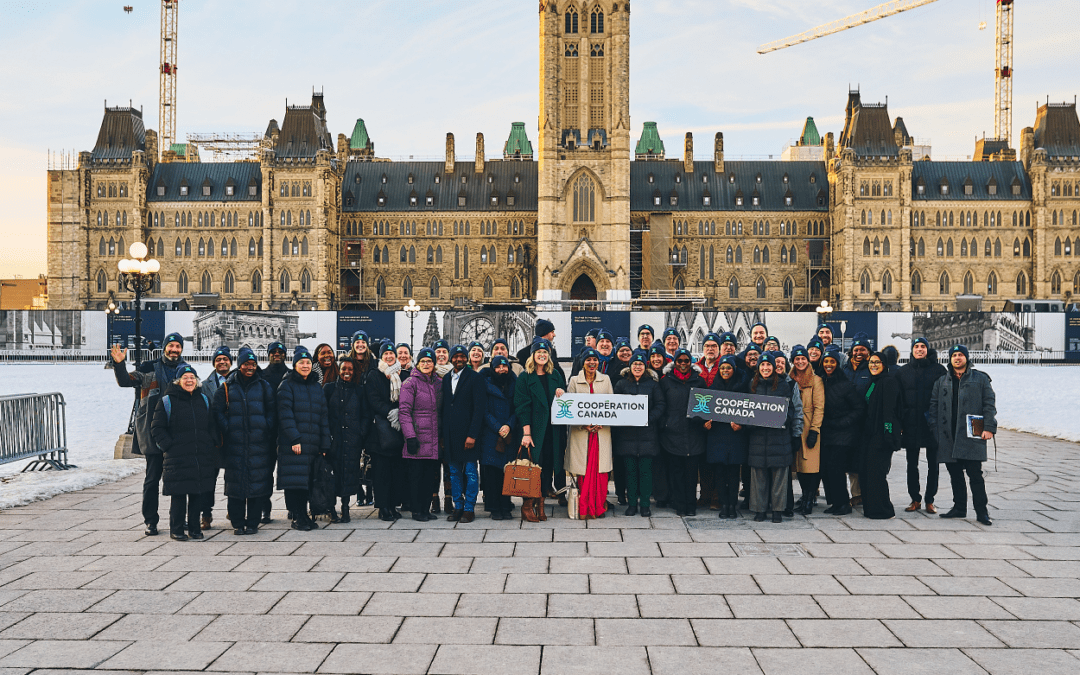
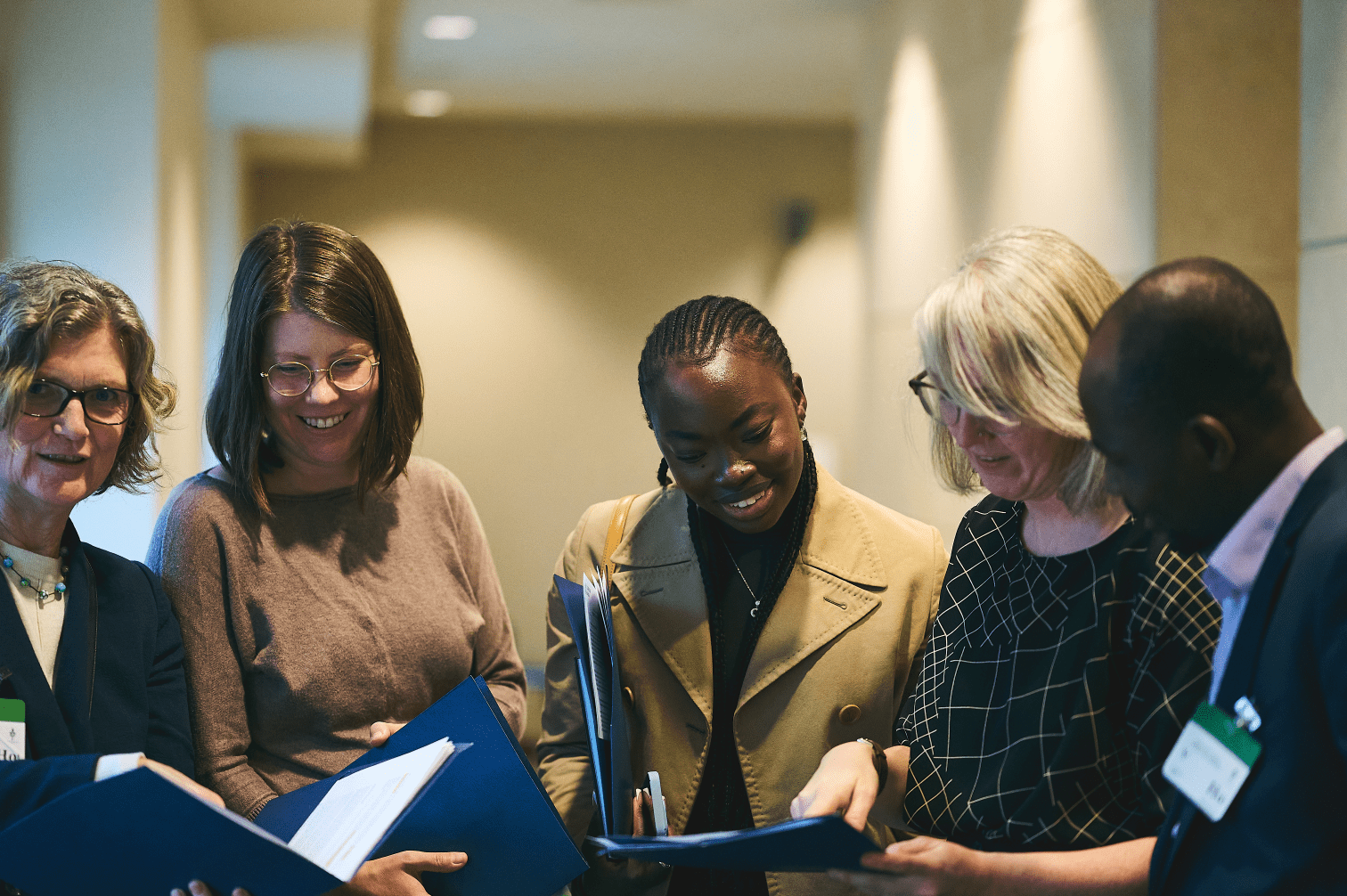
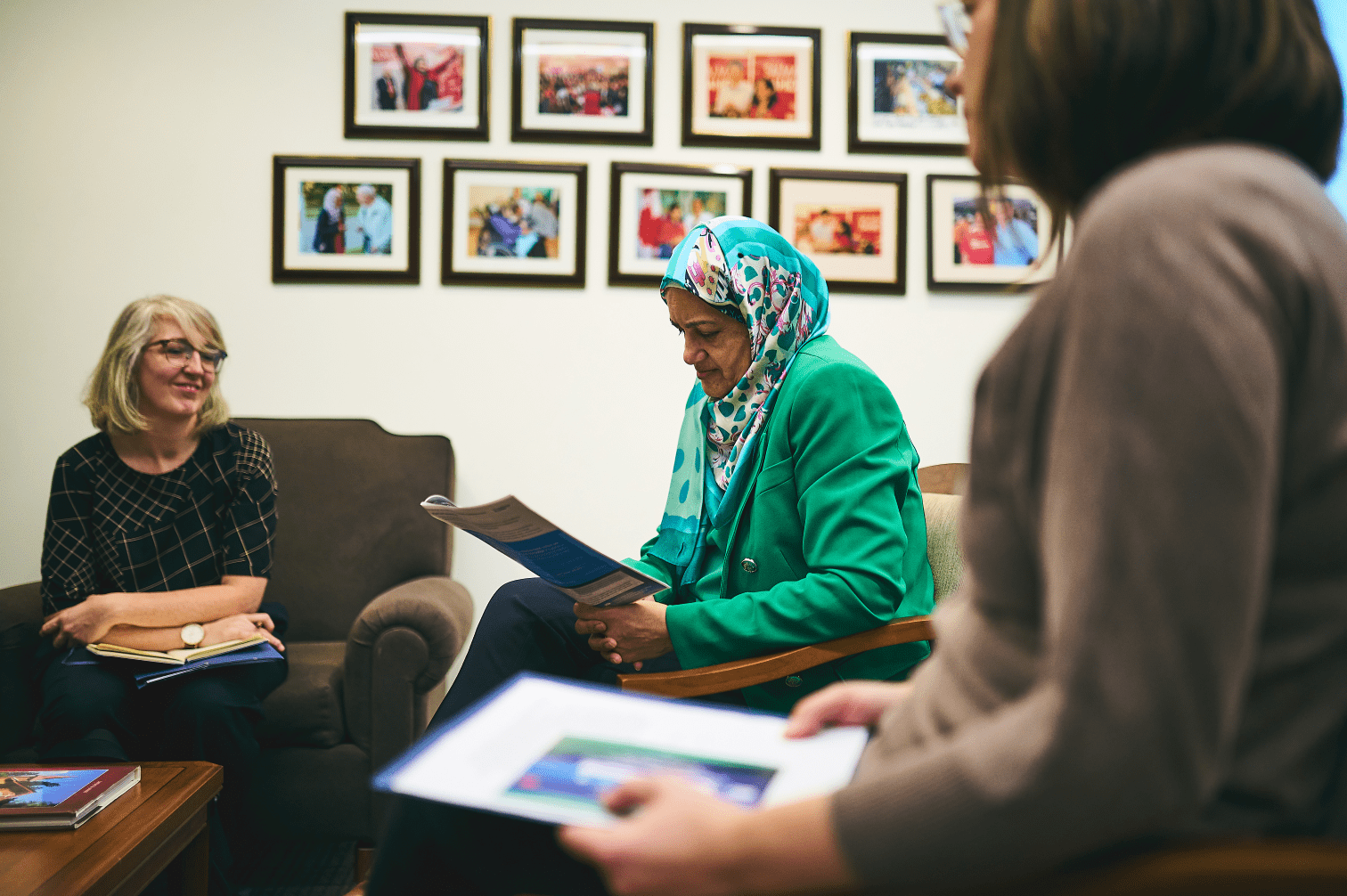
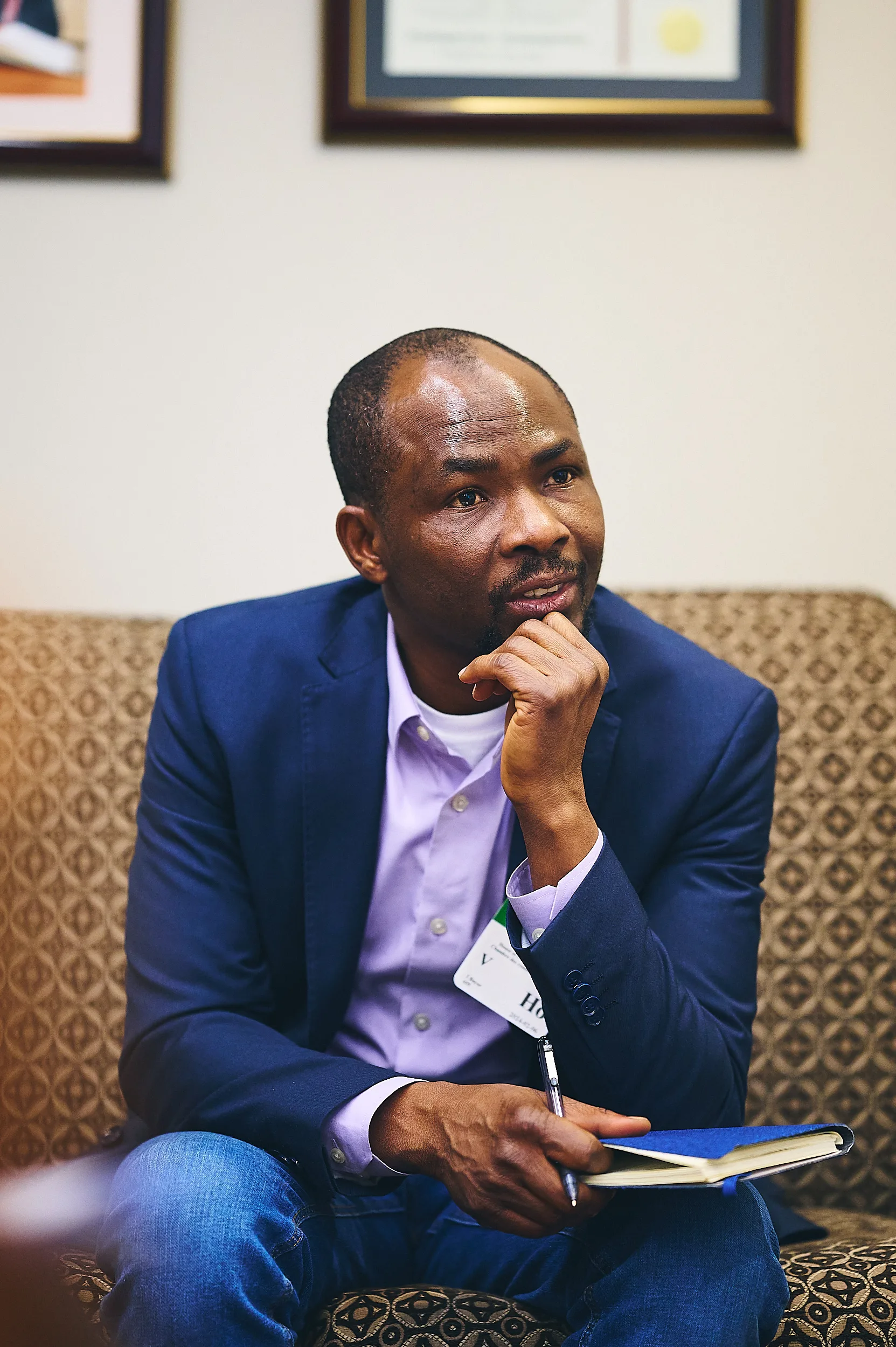


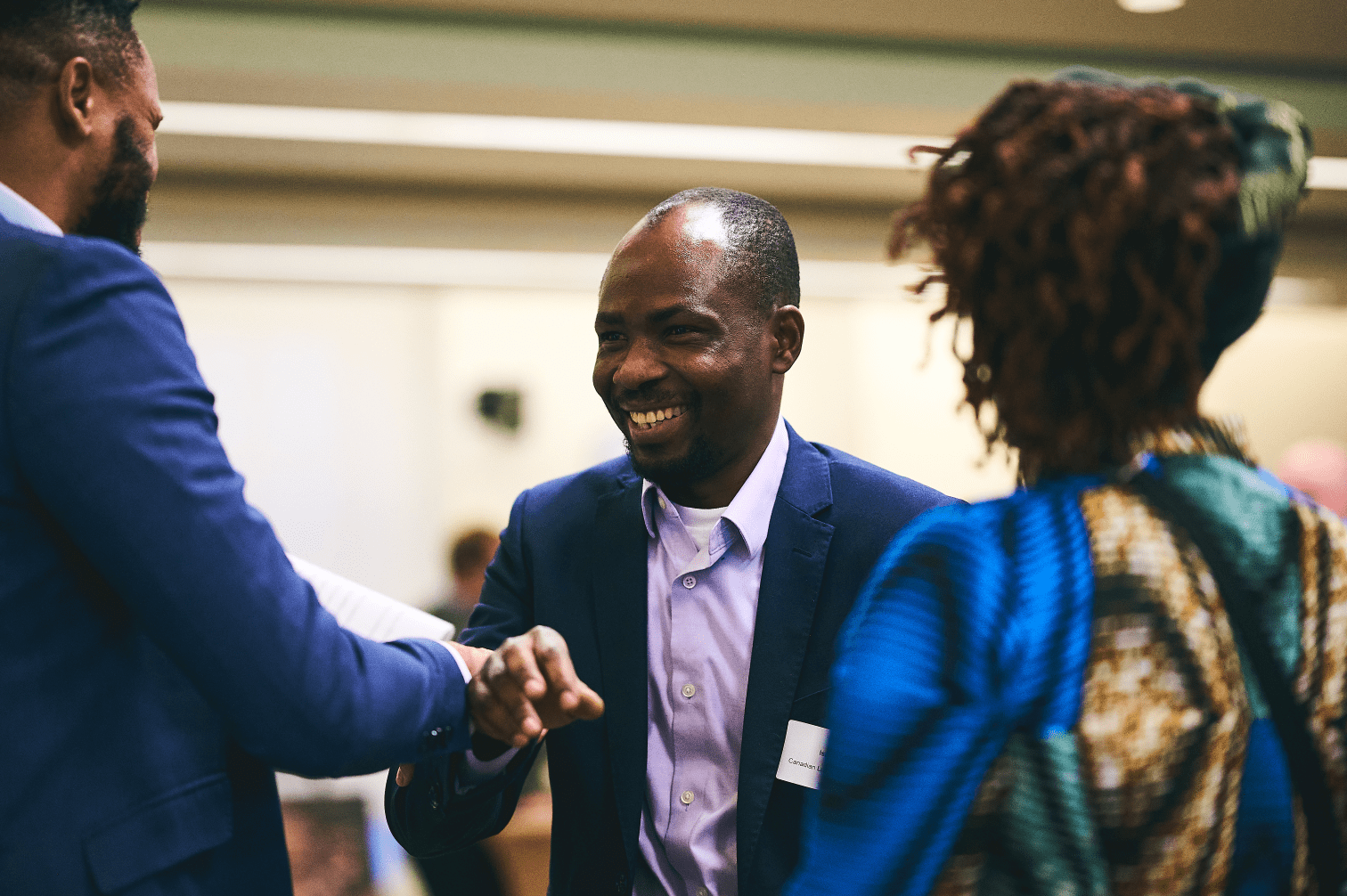
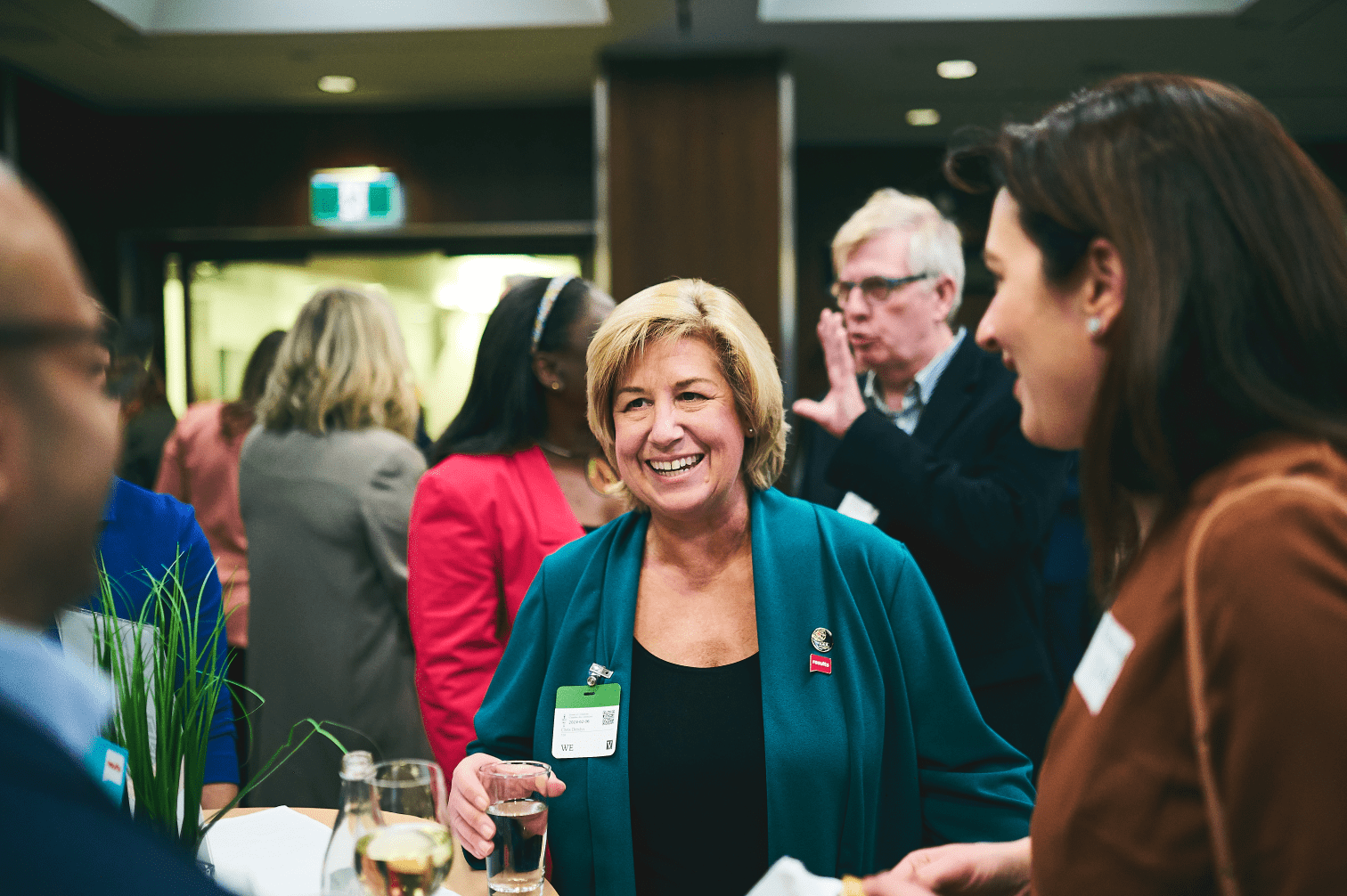

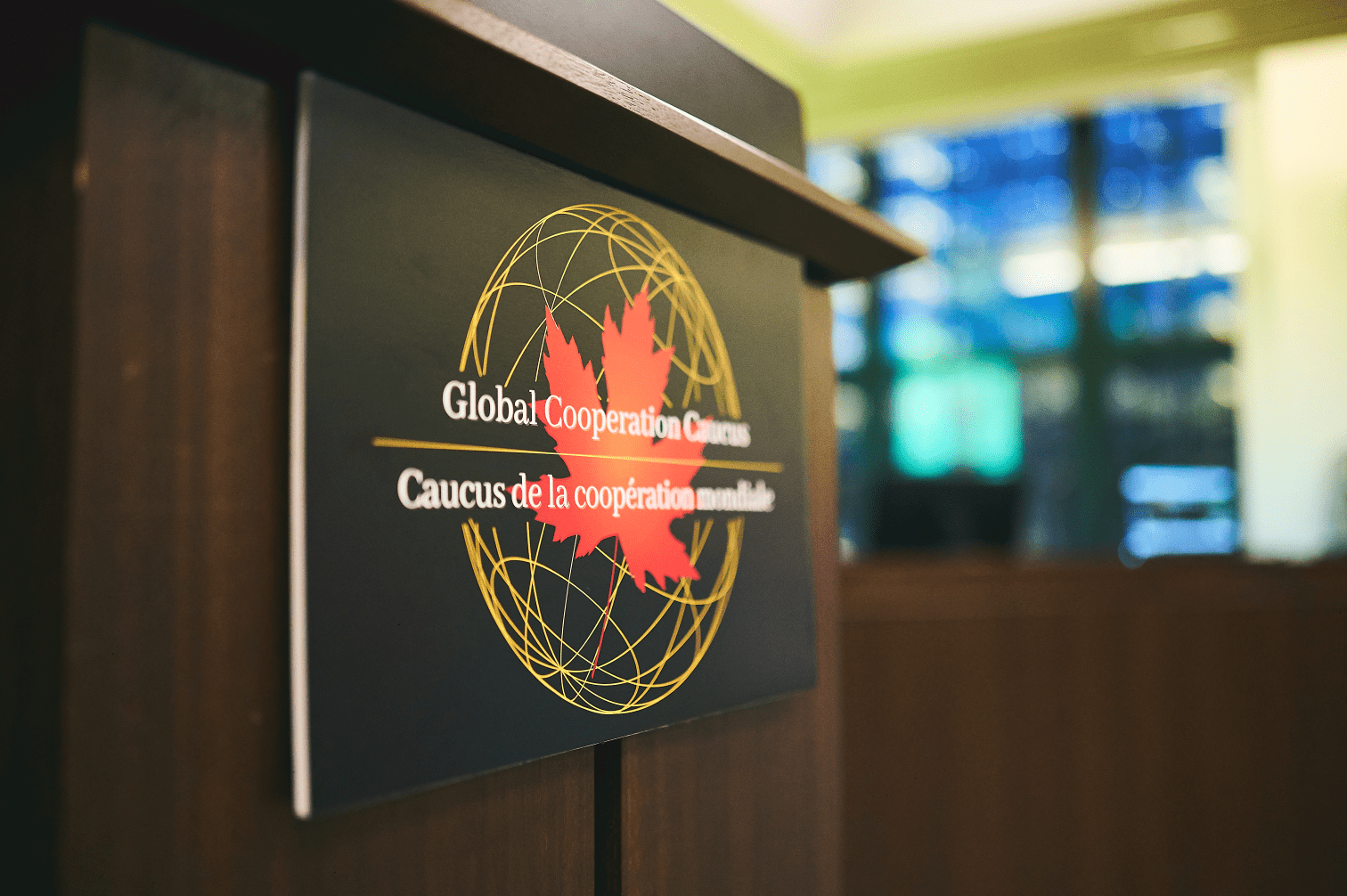

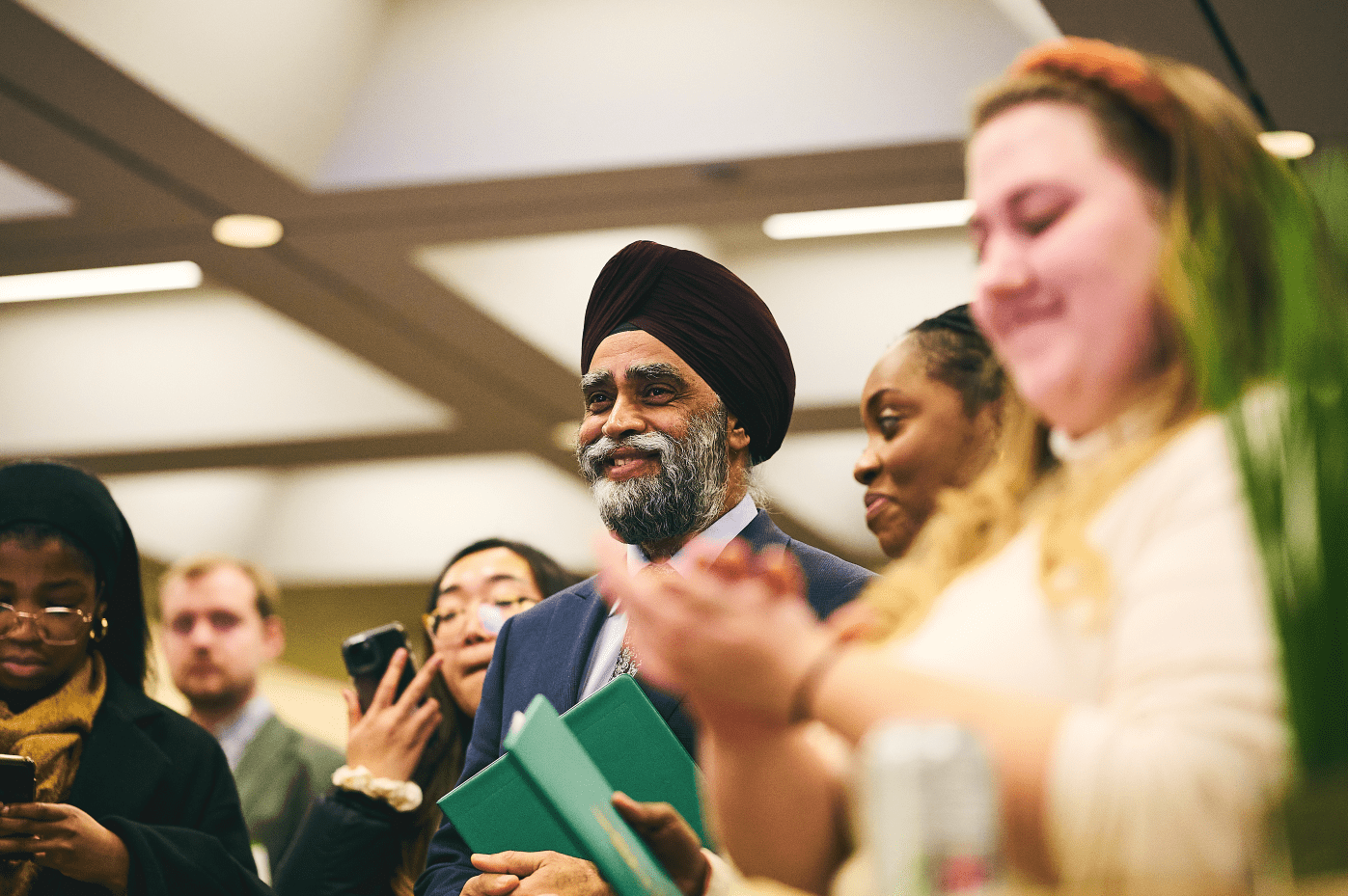
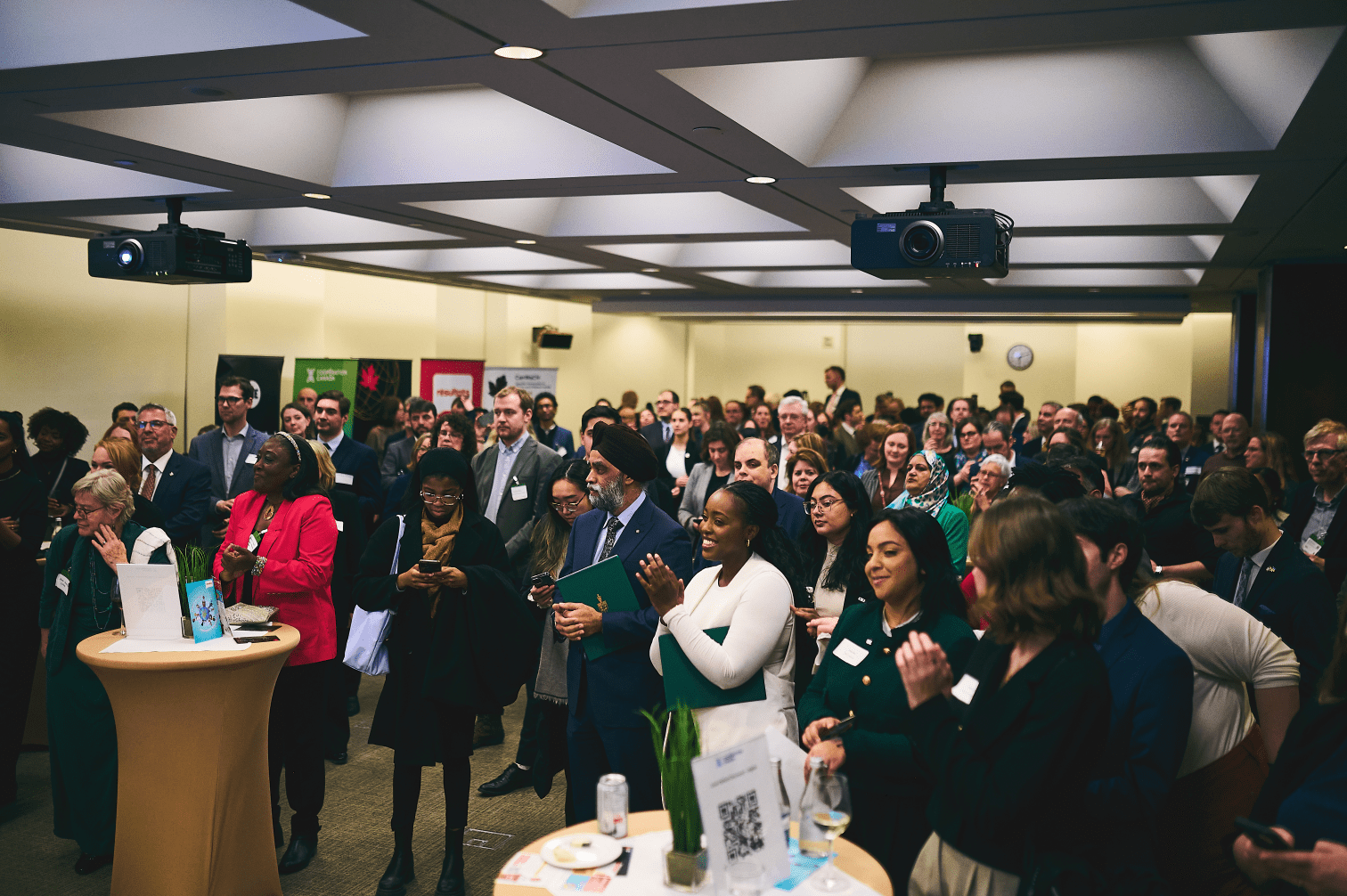
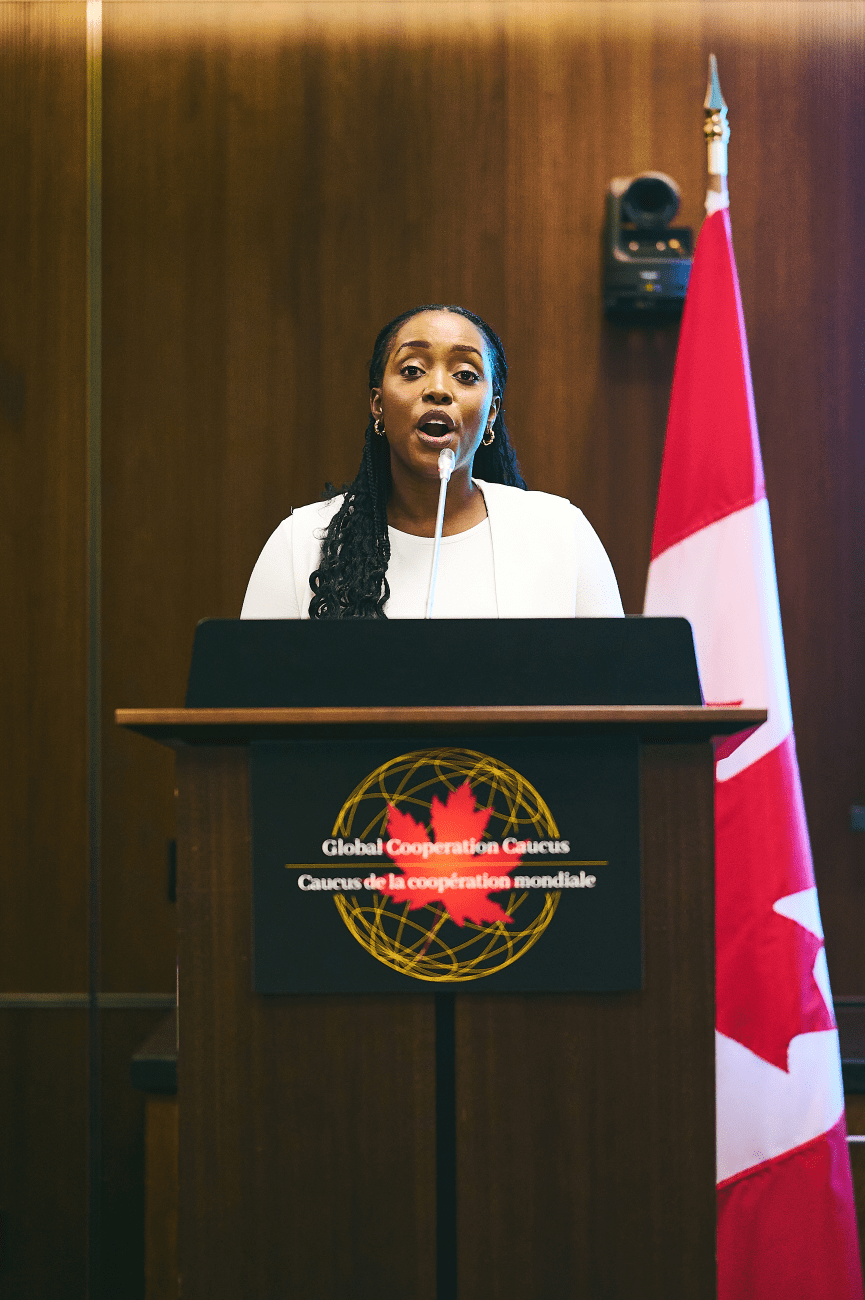
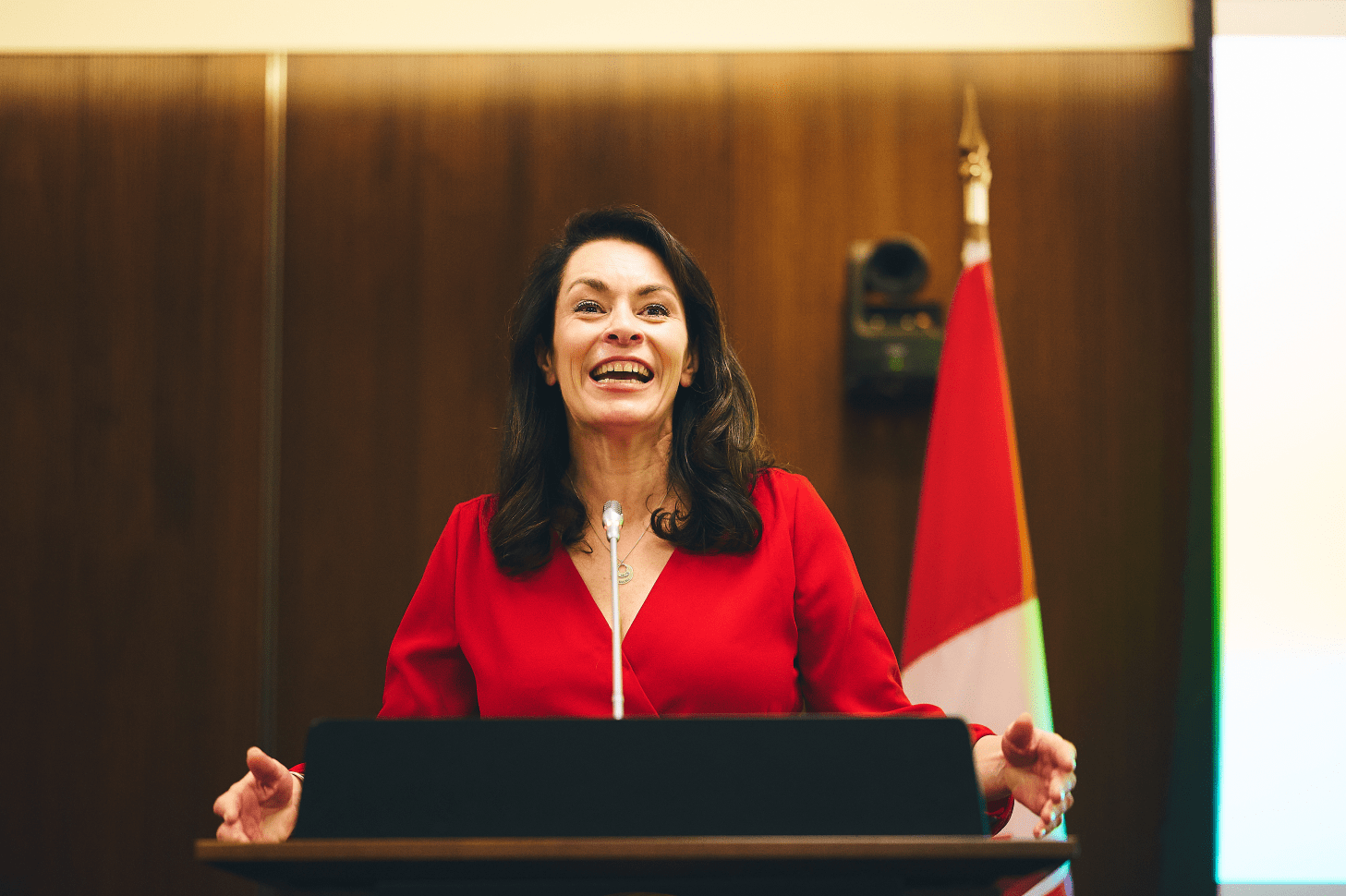
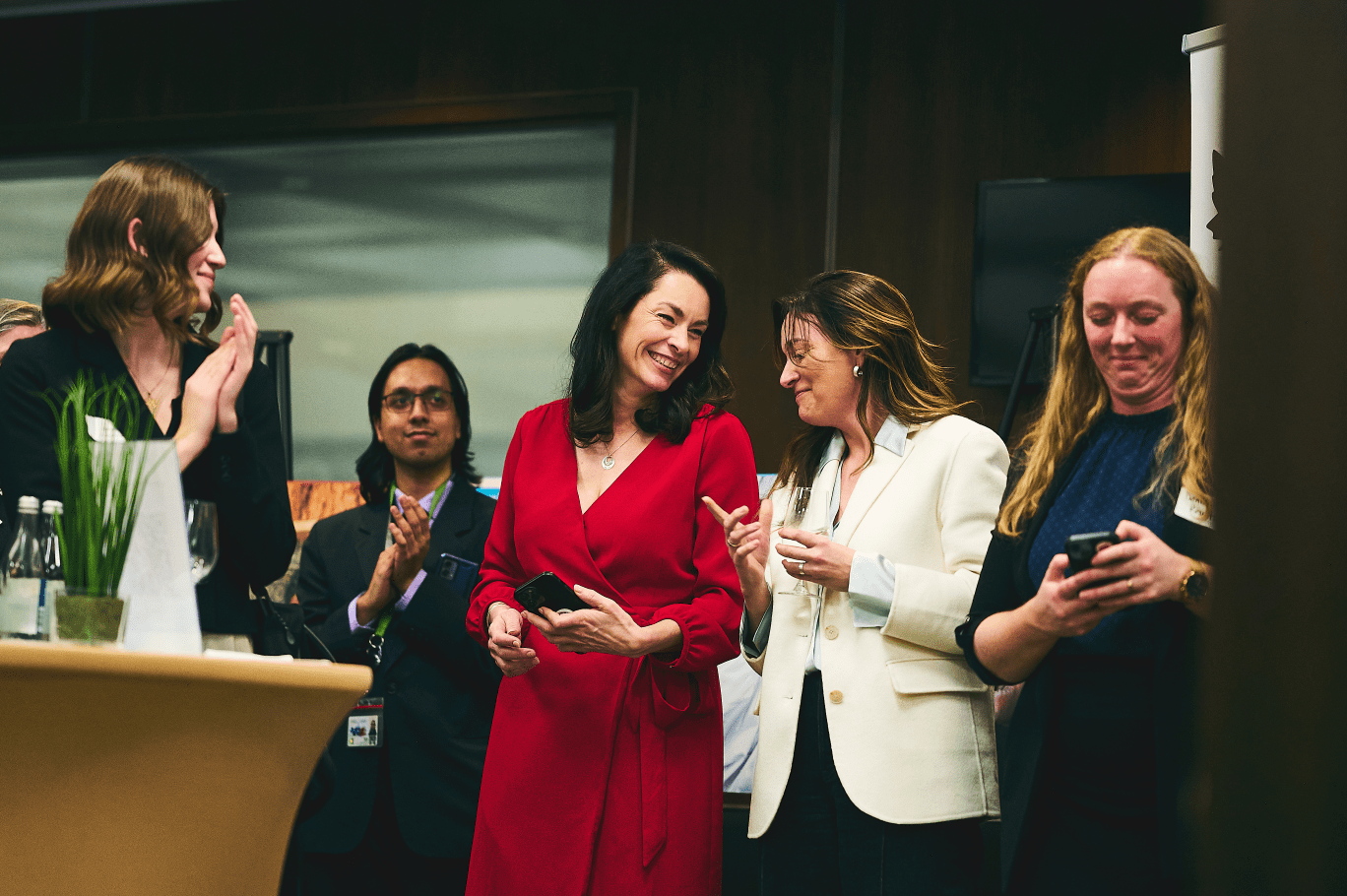
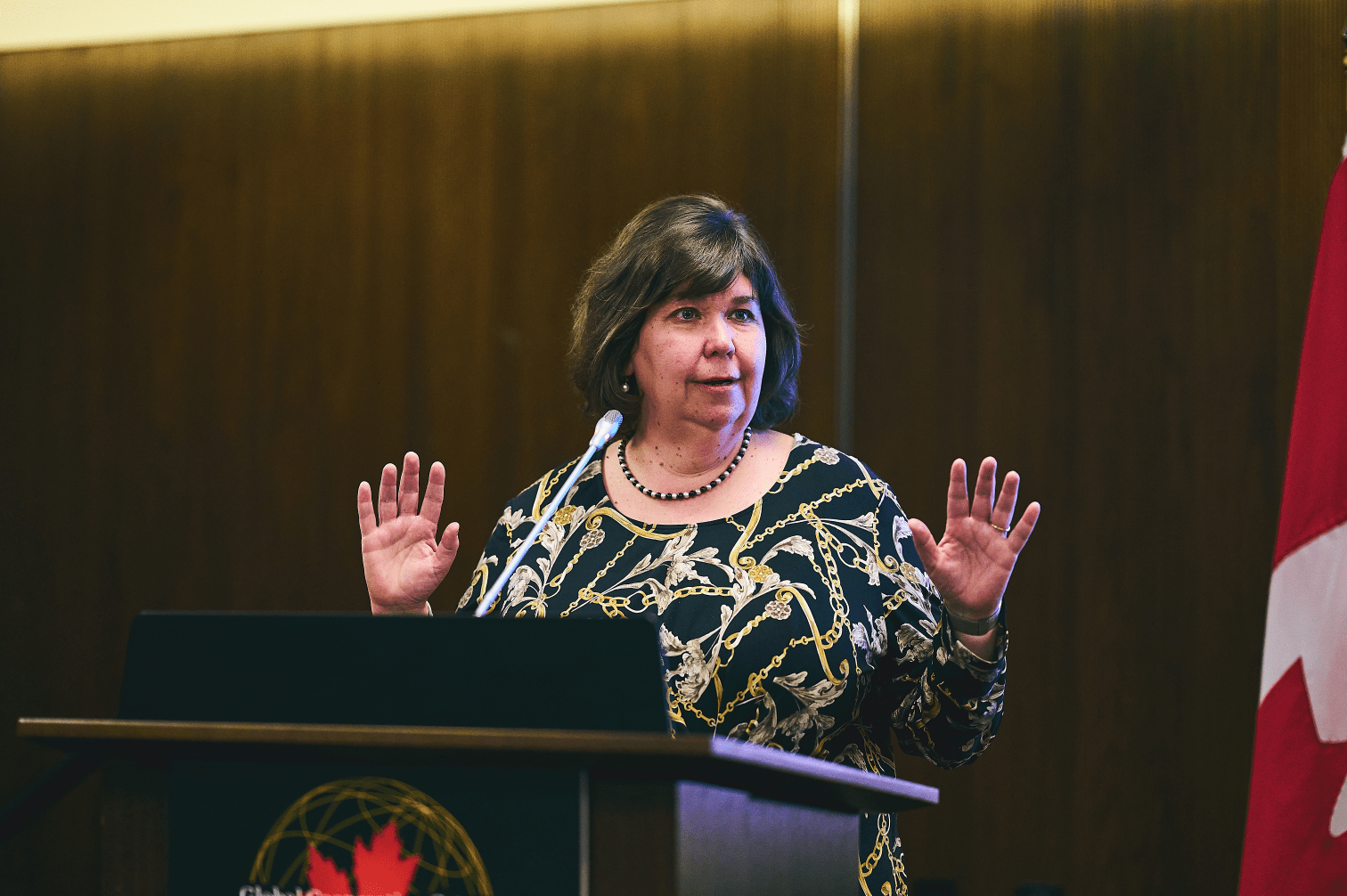
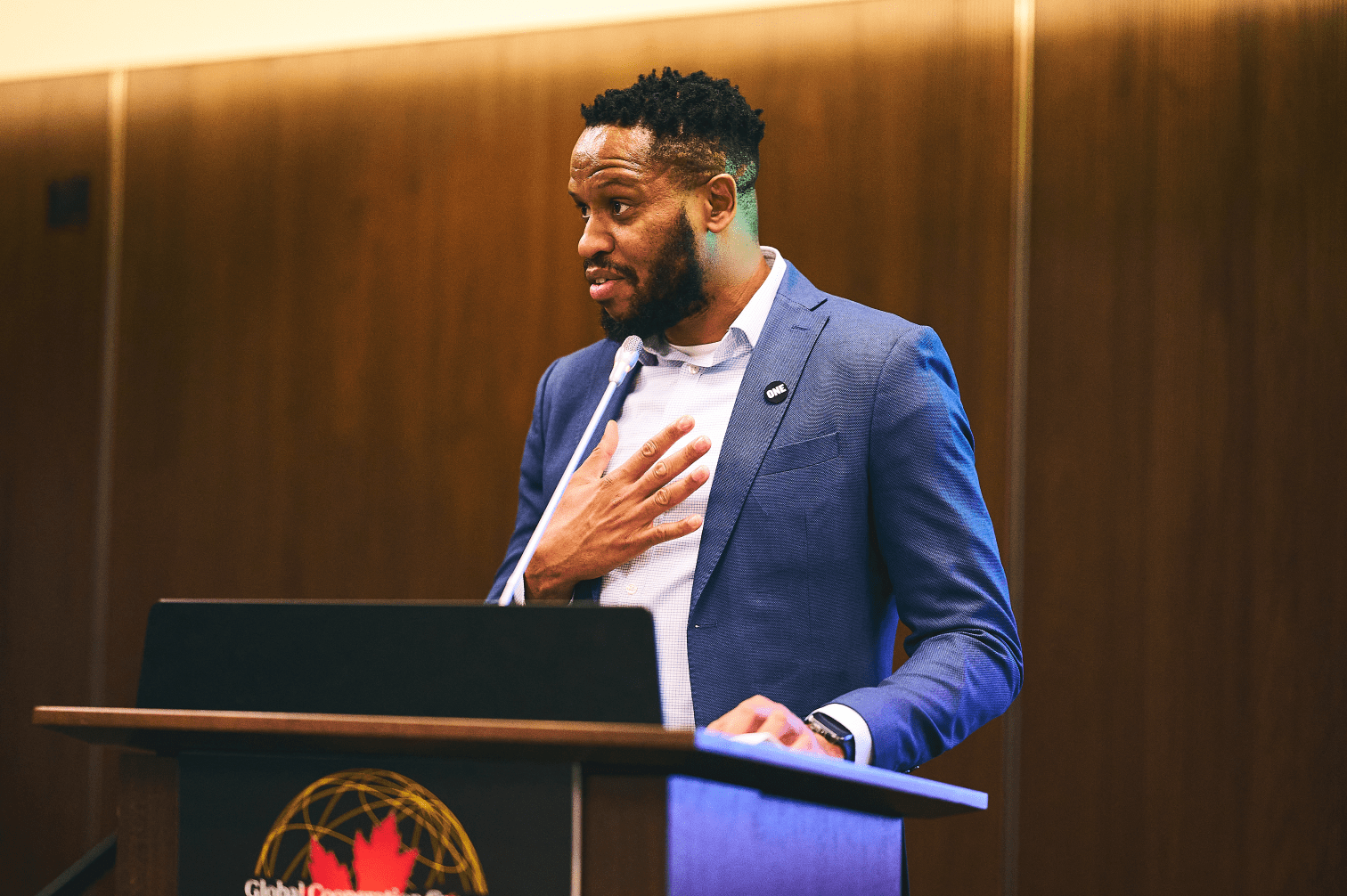
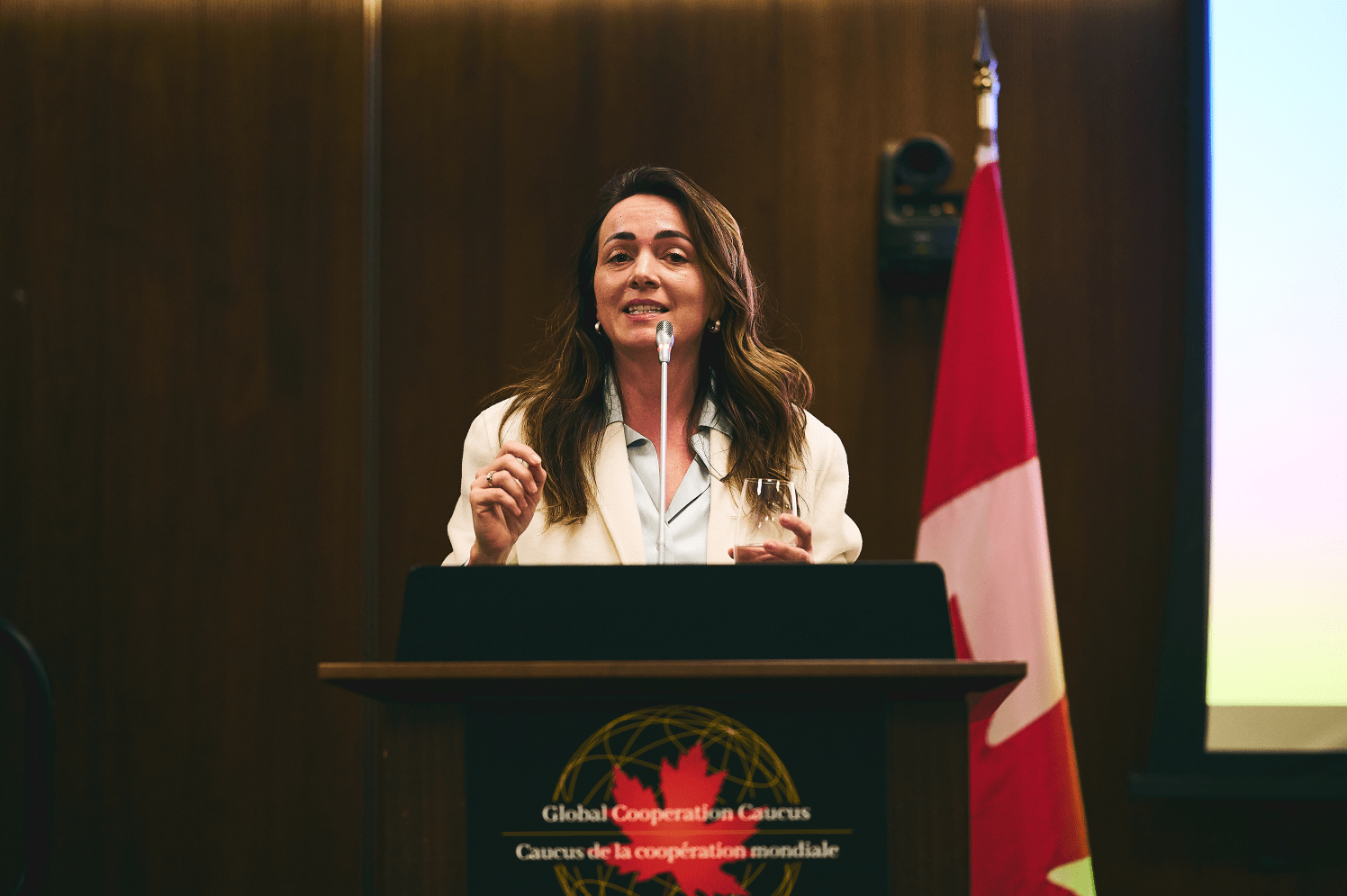
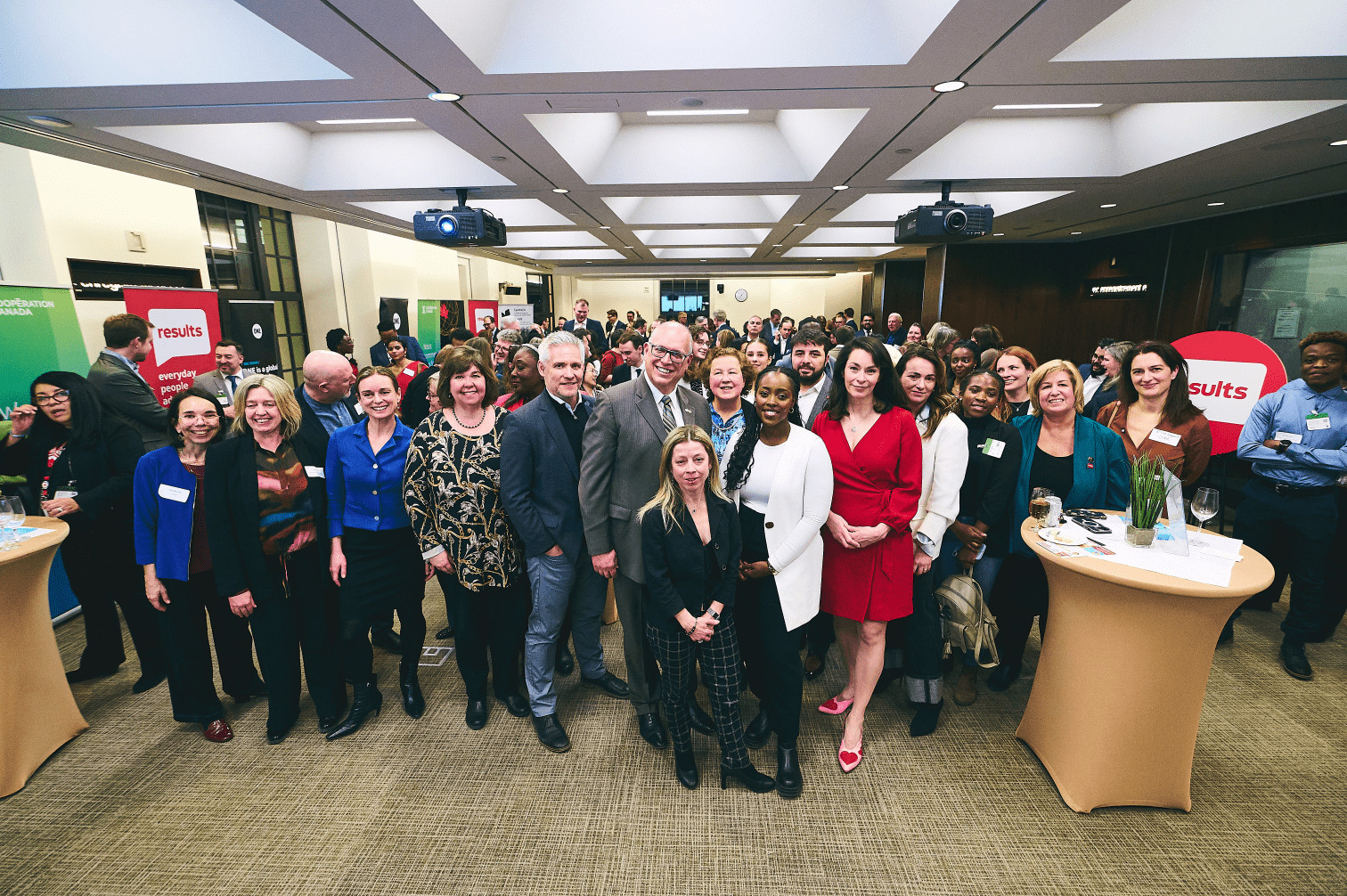
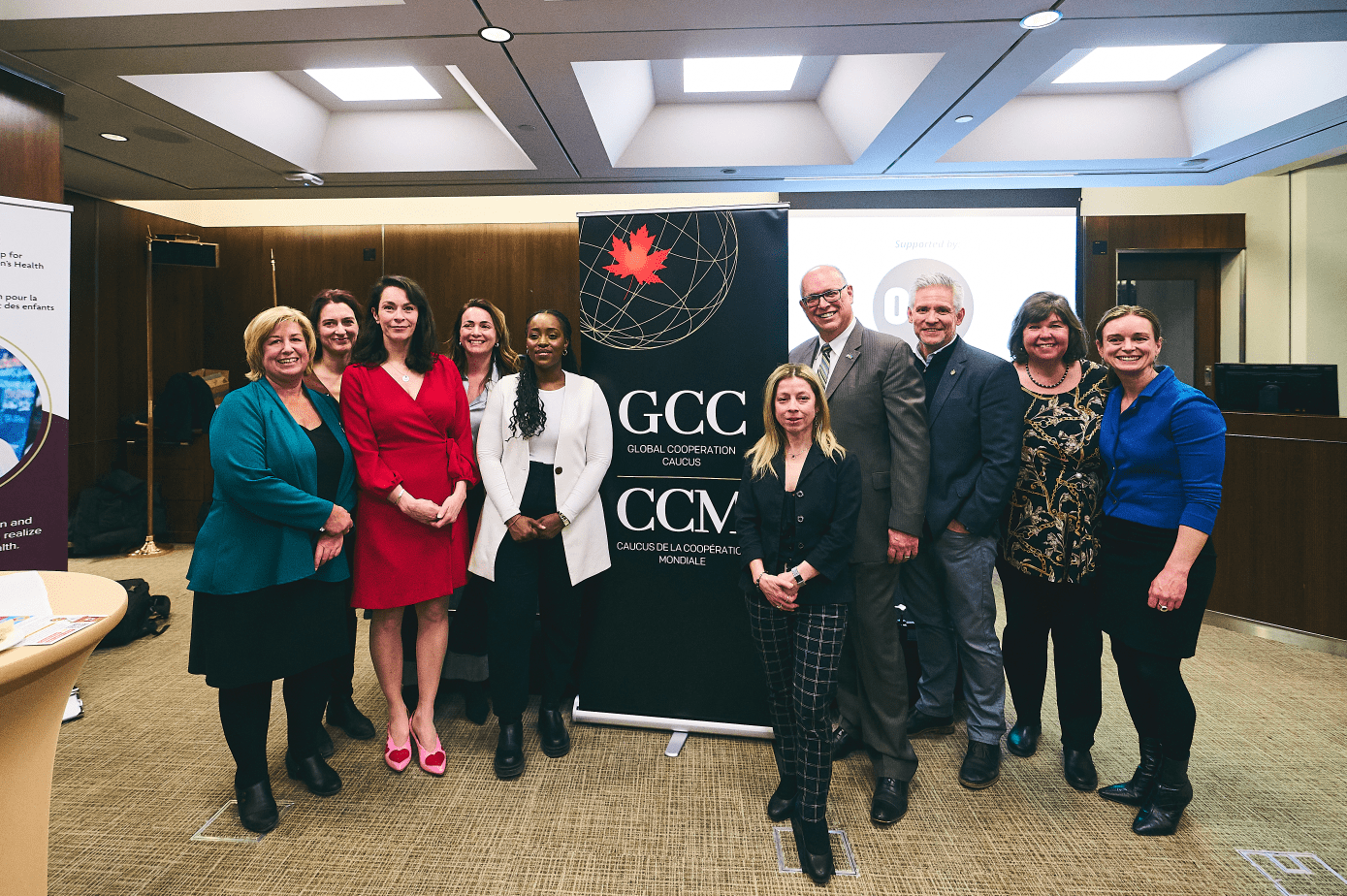
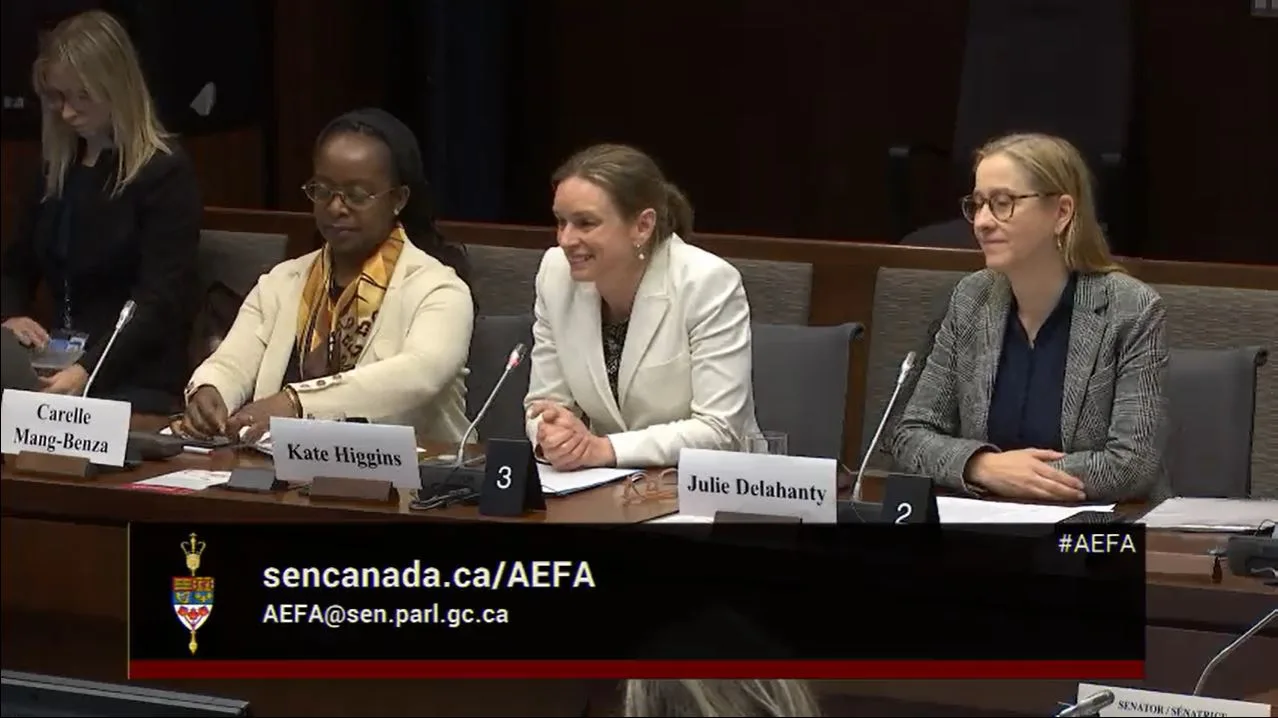
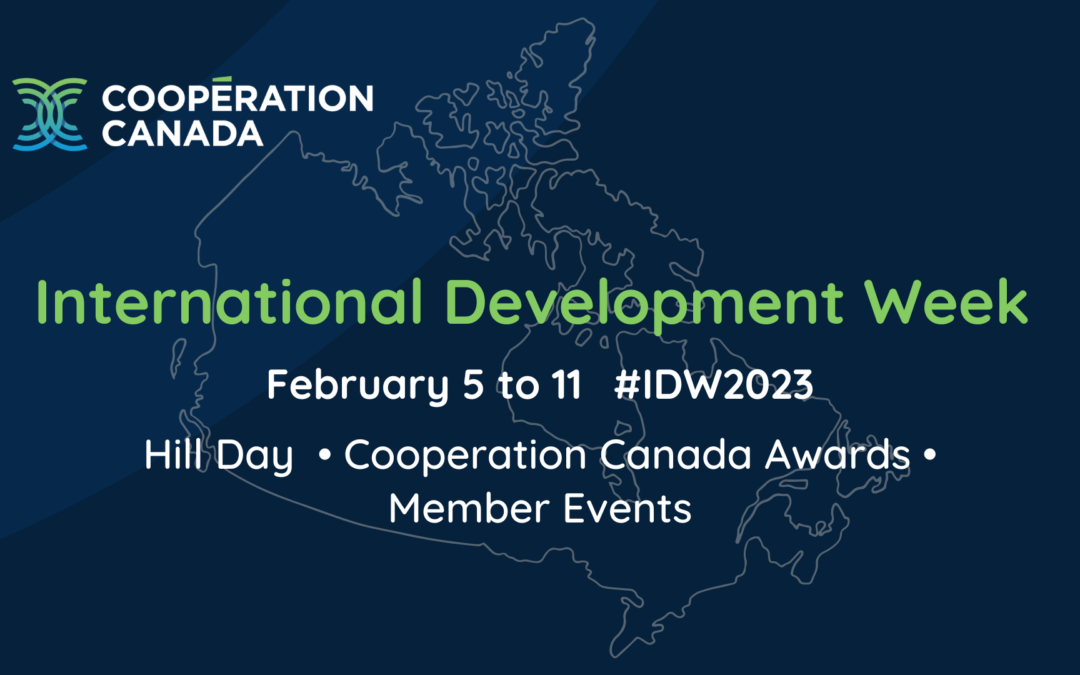
![PXL_20230207_191809443[1] PXL_20230207_1918094431](https://cooperation.ca/wp-content/uploads/2023/02/PXL_20230207_1918094431-1020x768.jpg)

